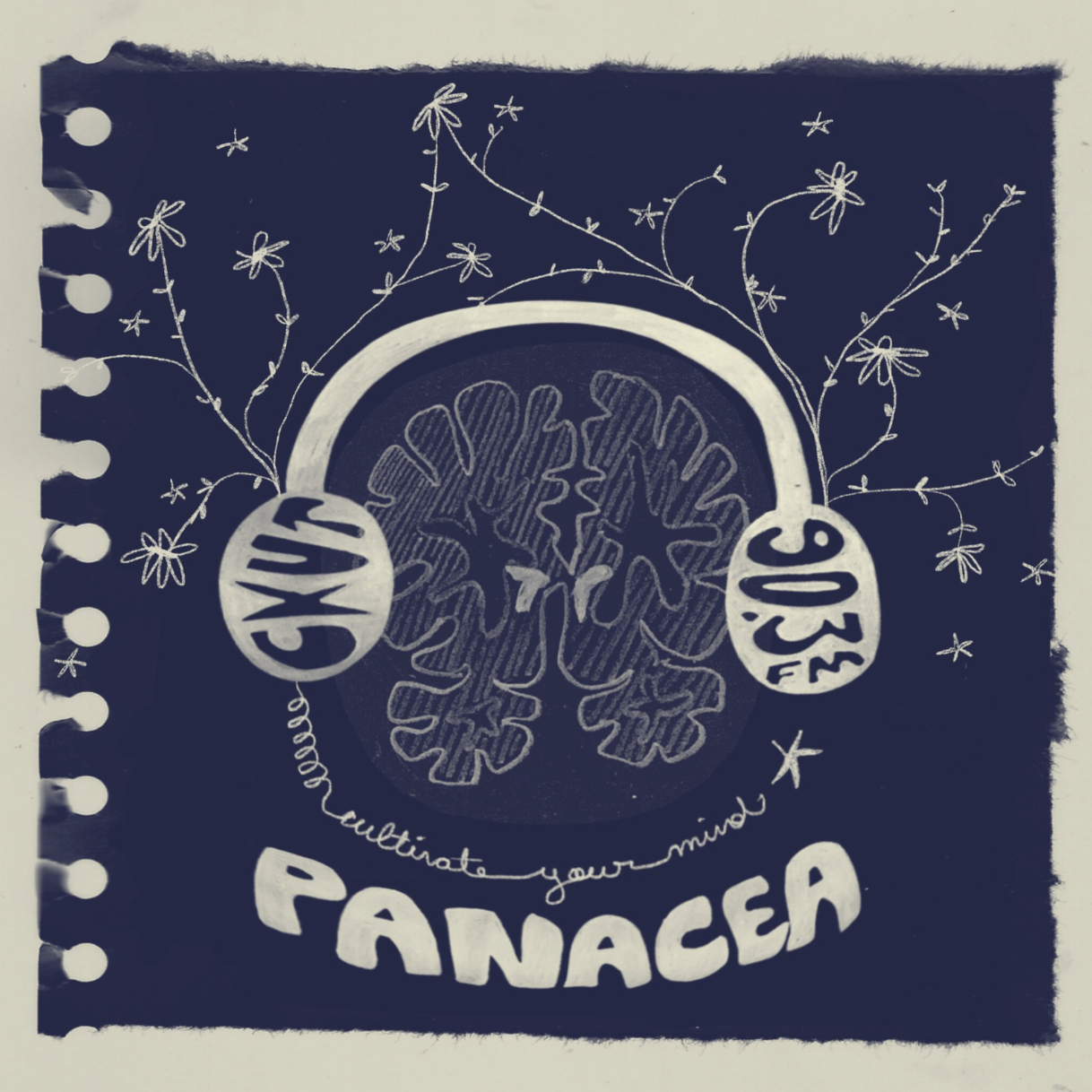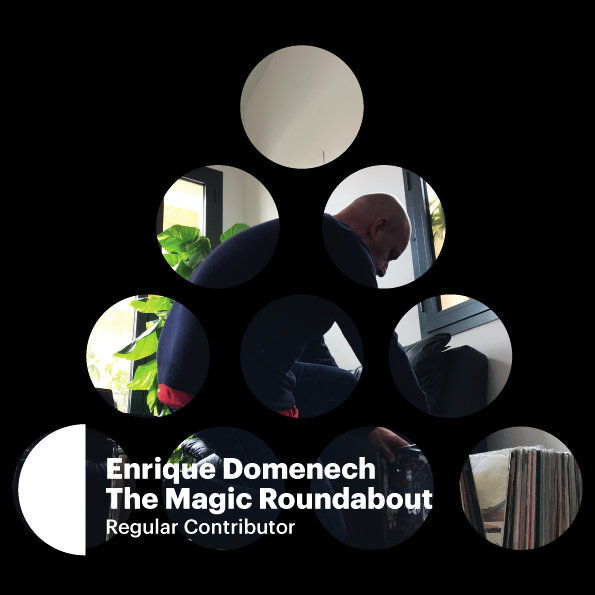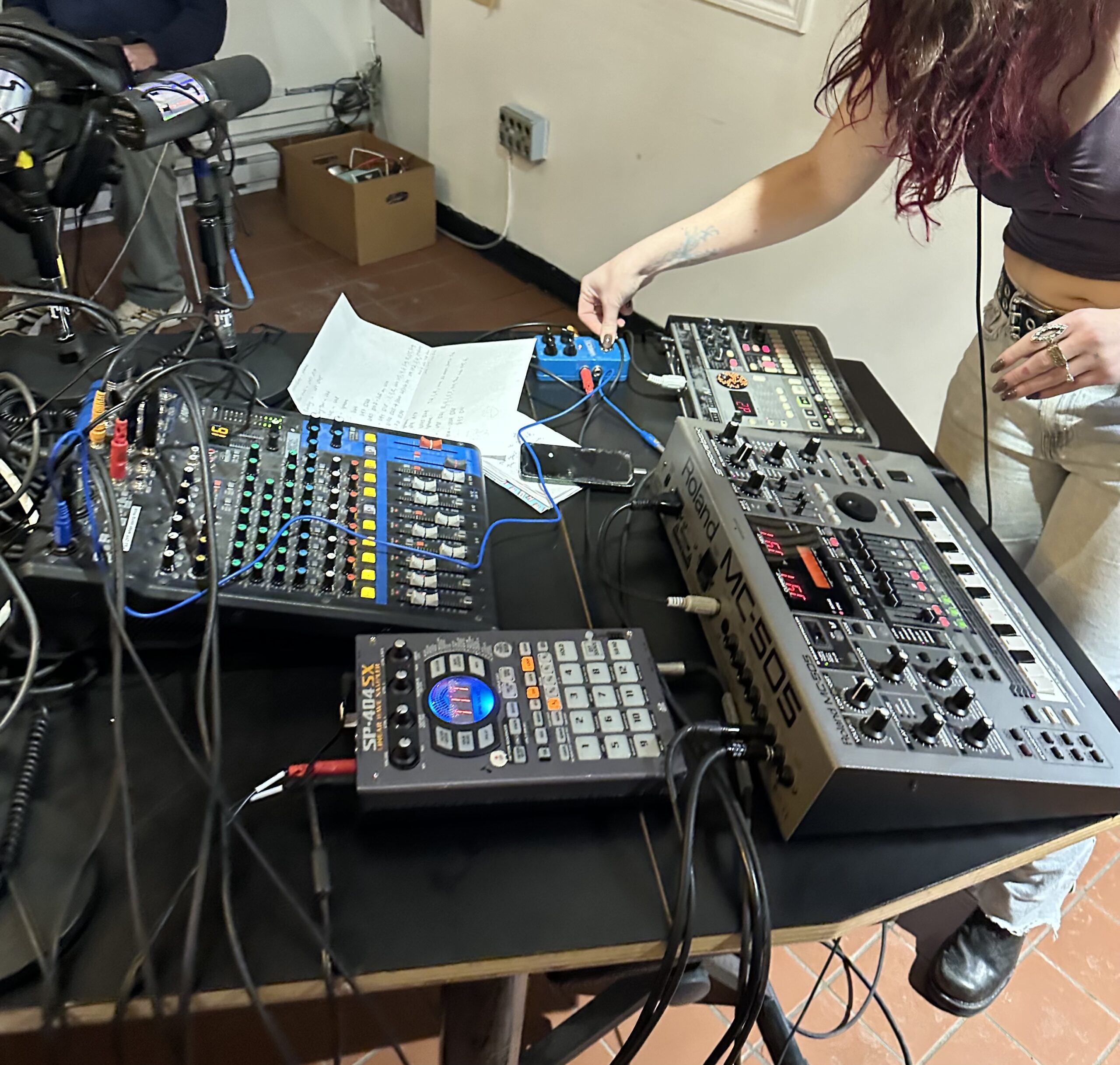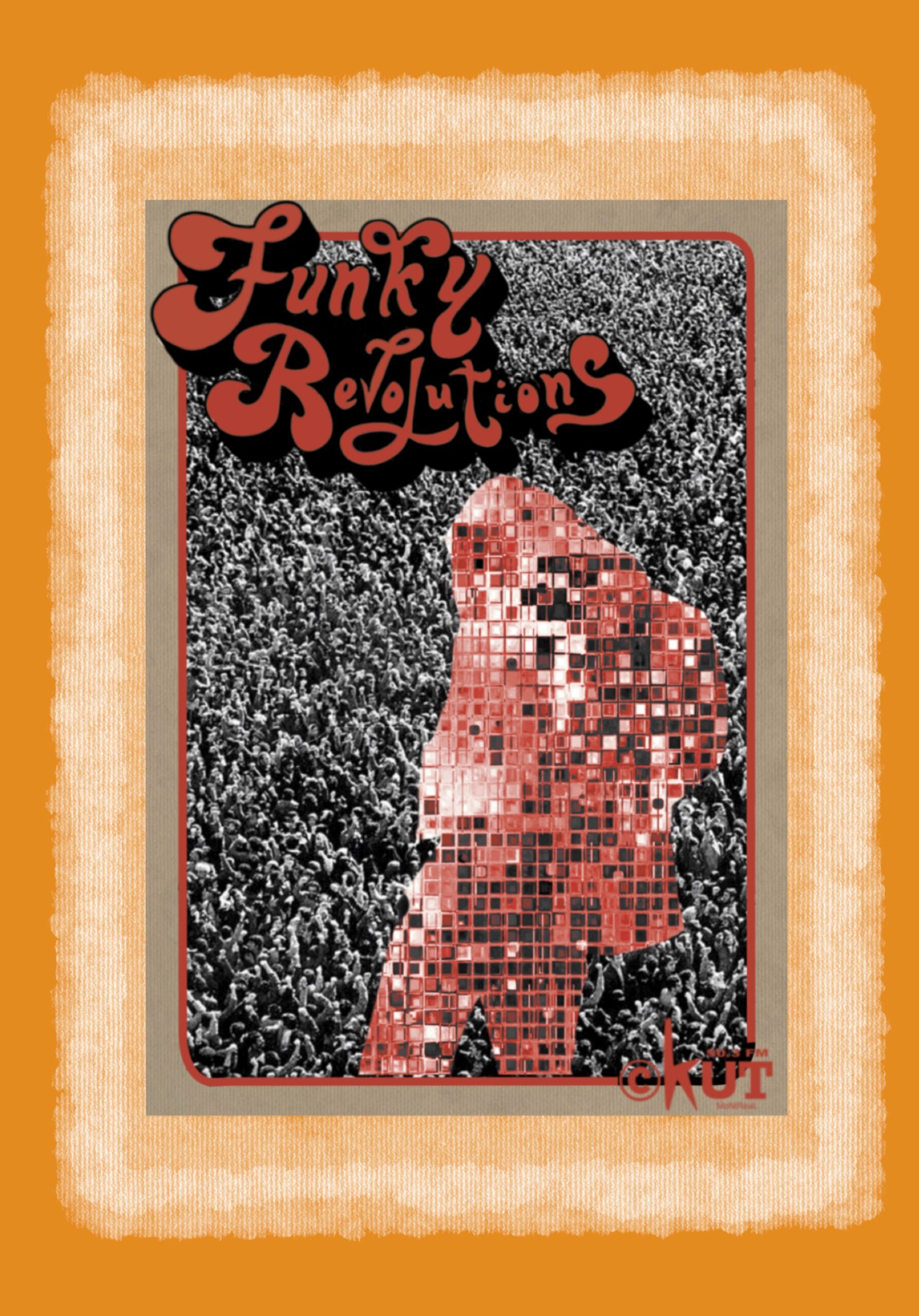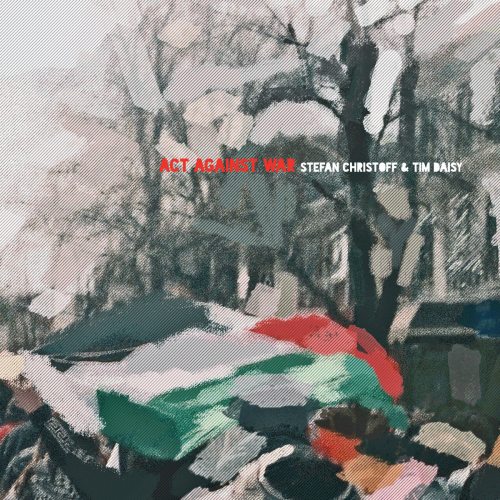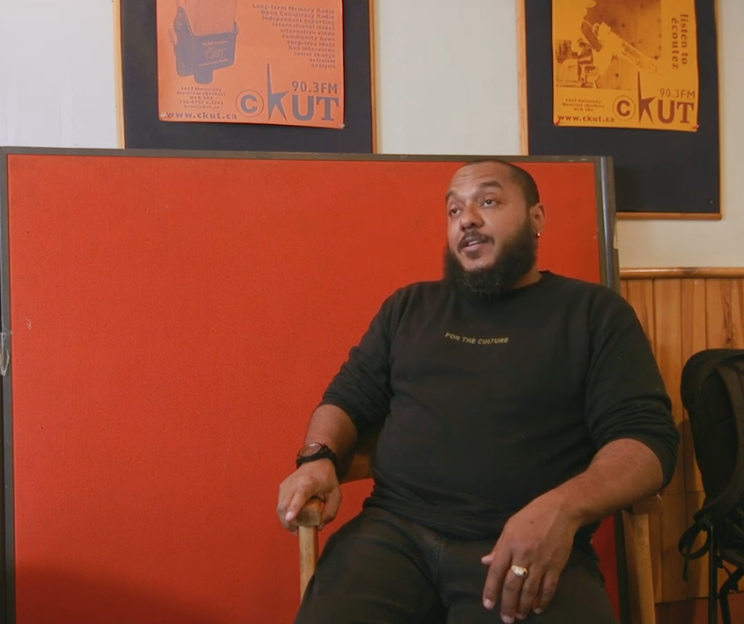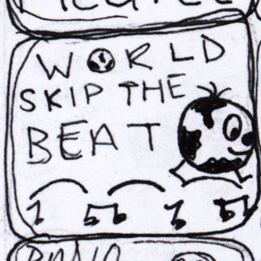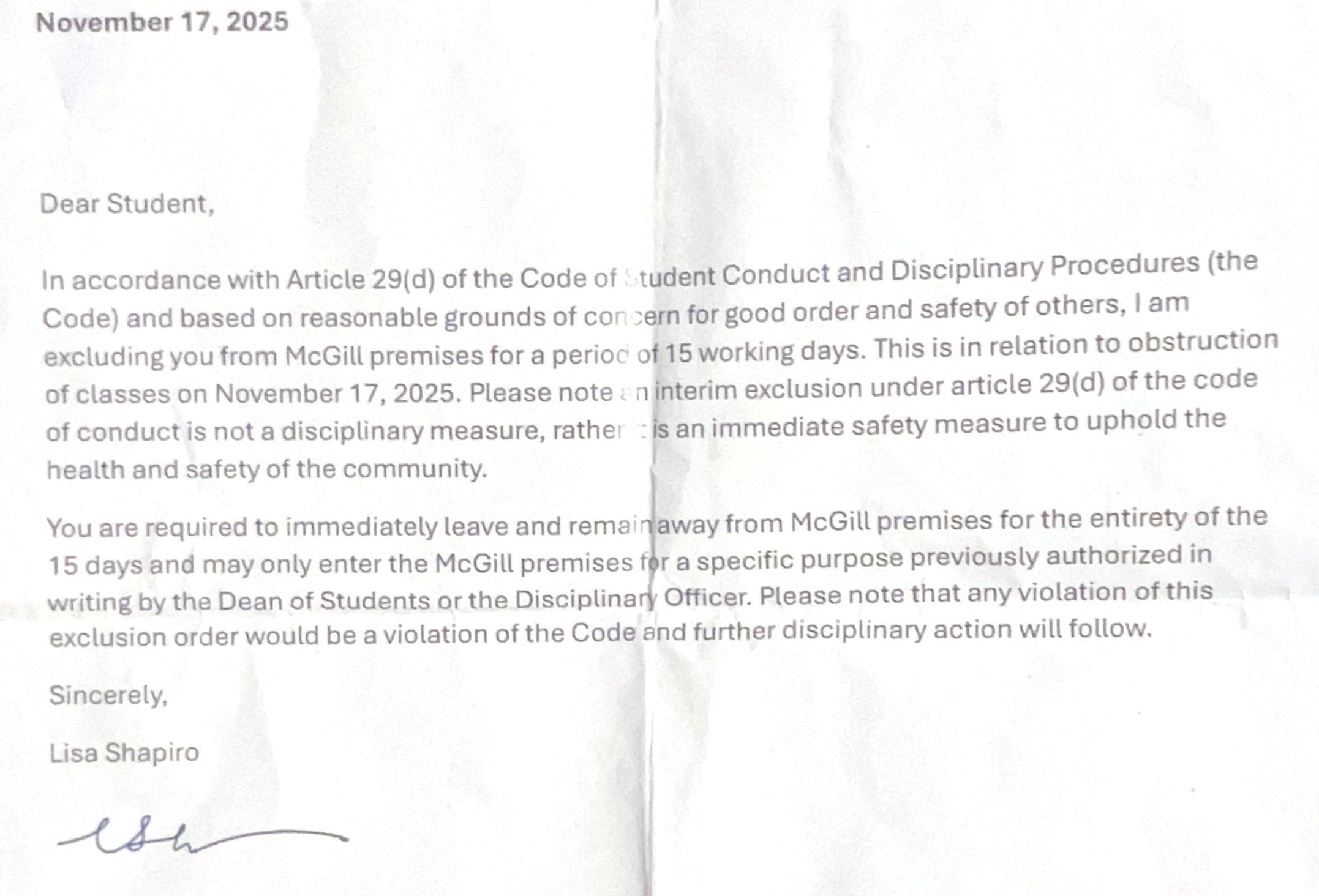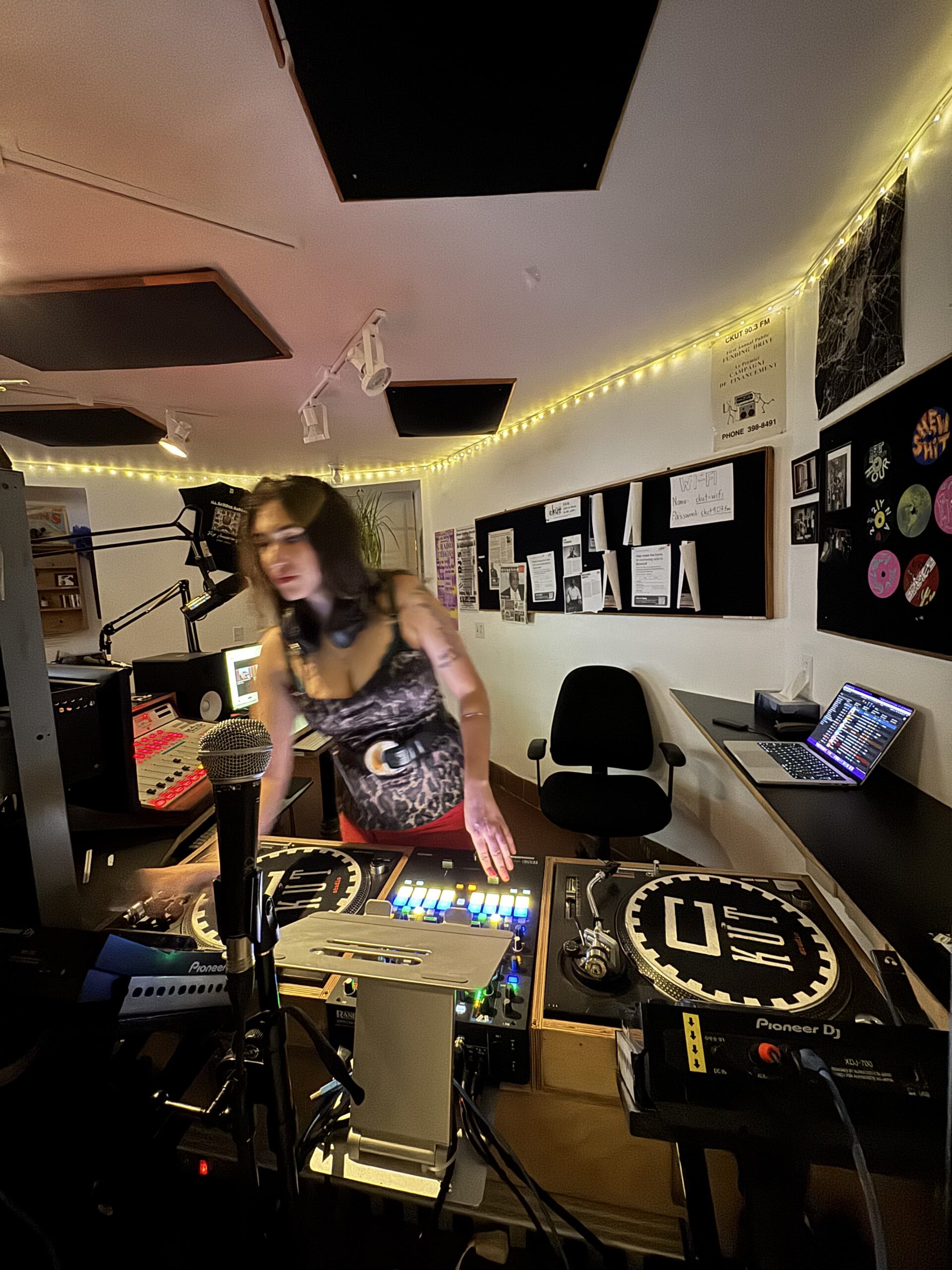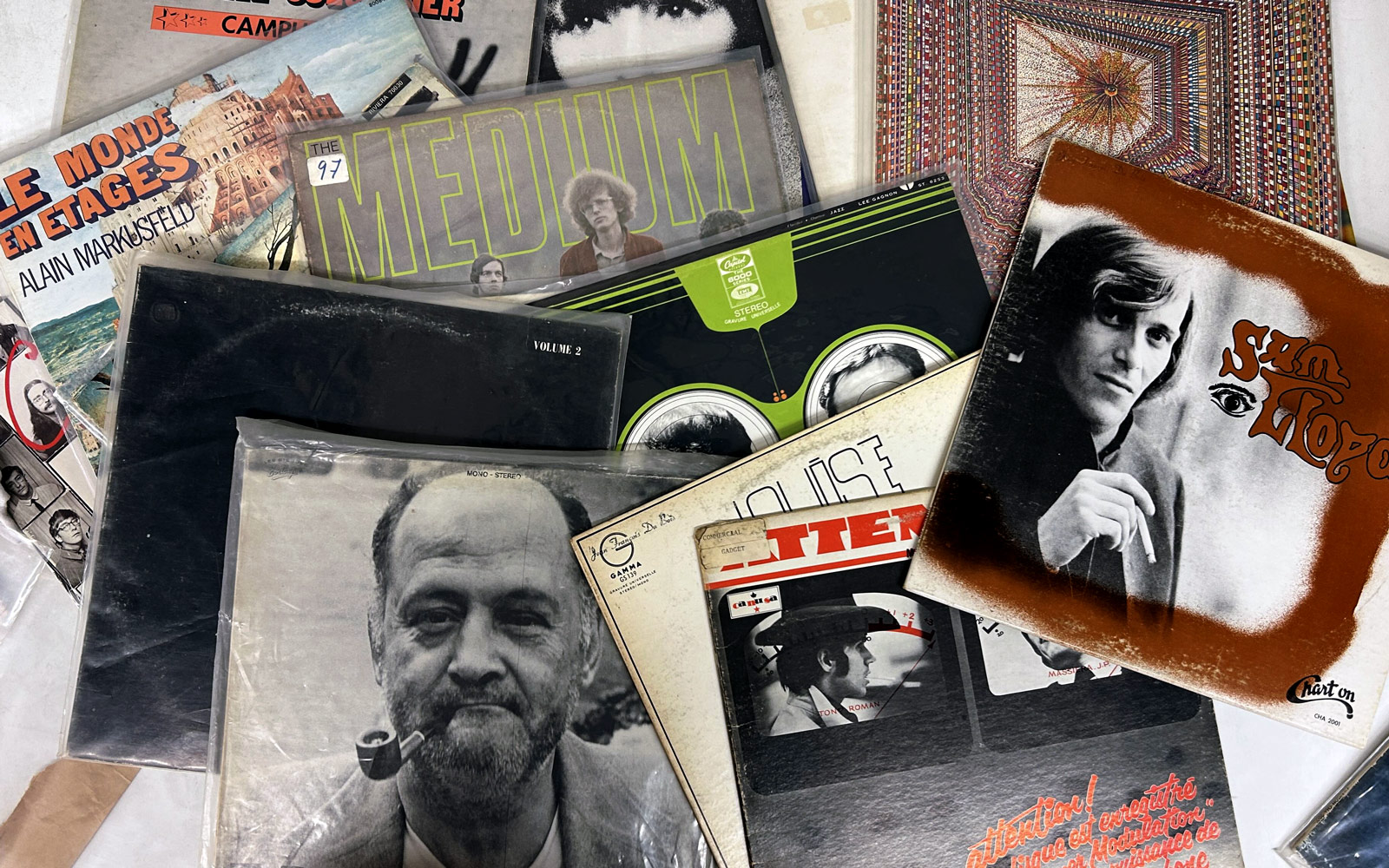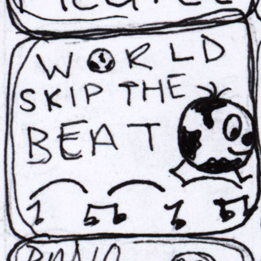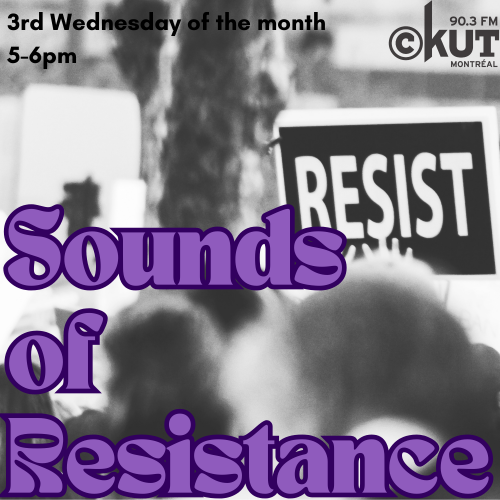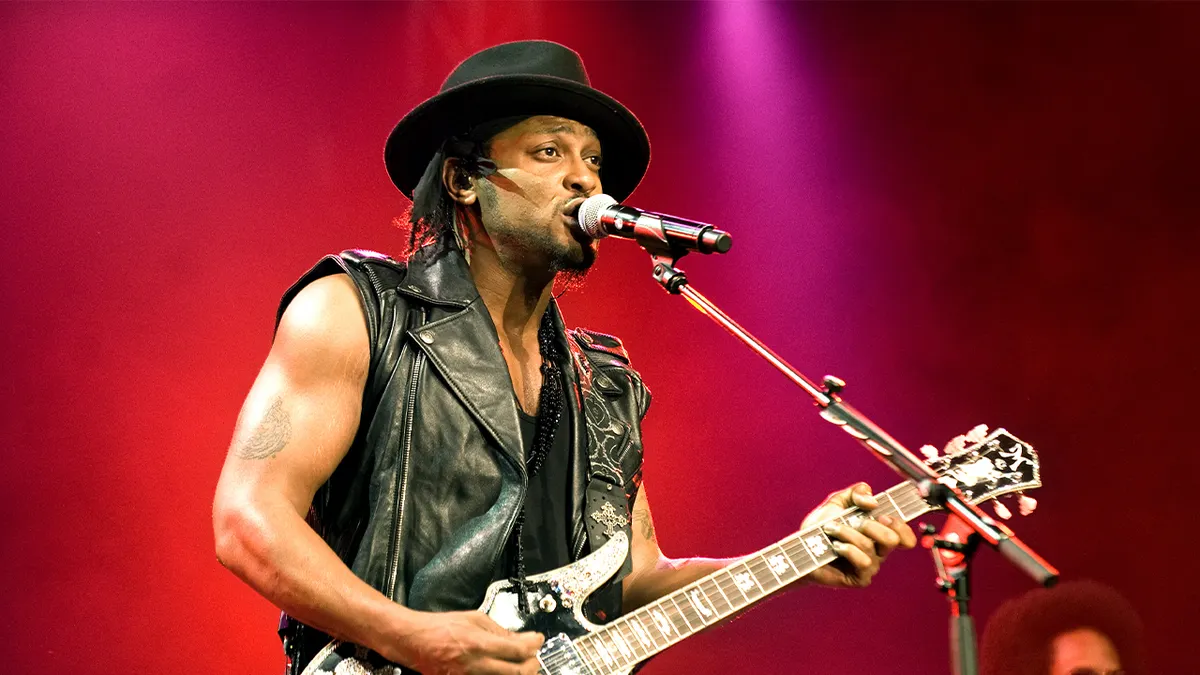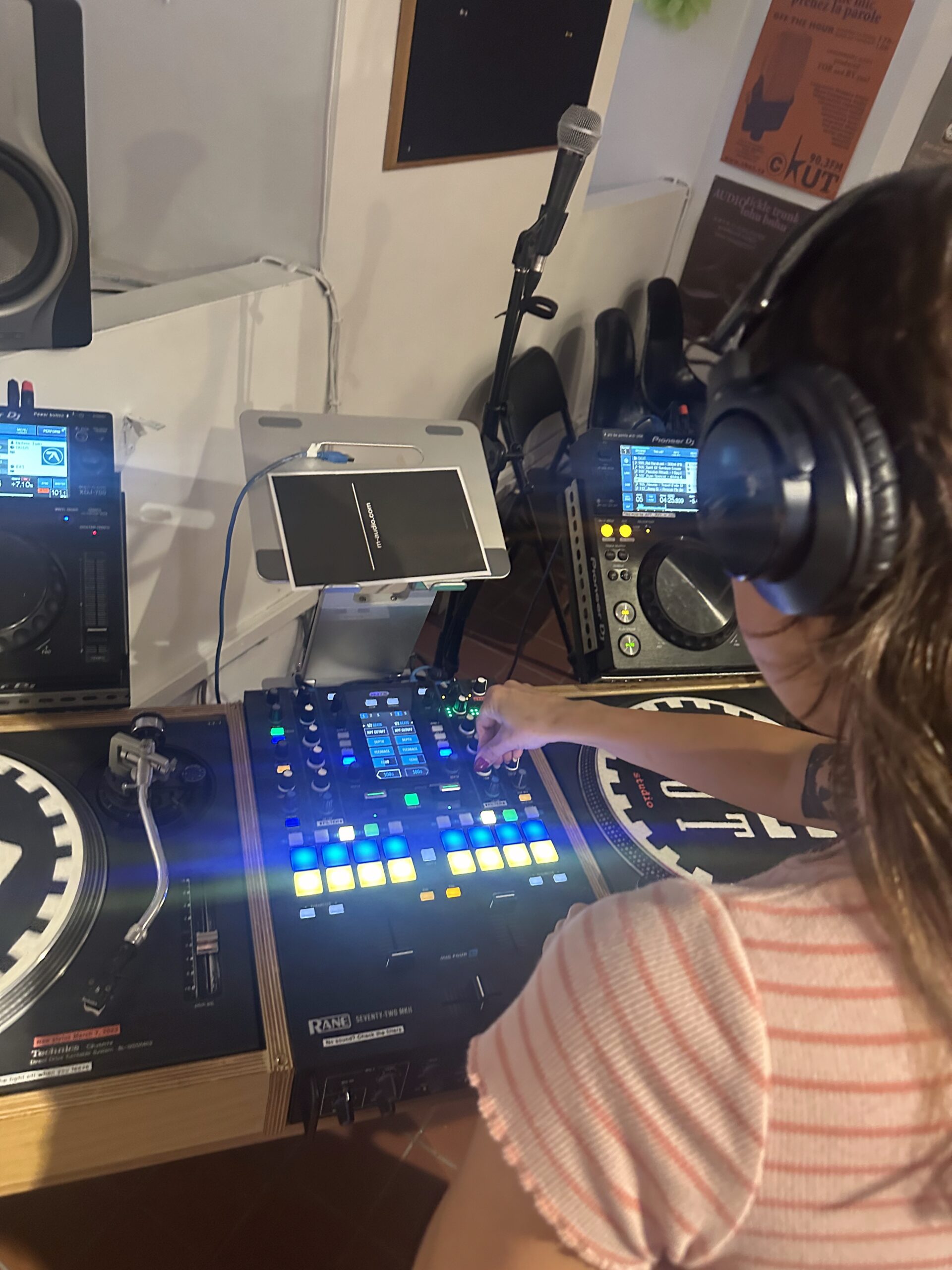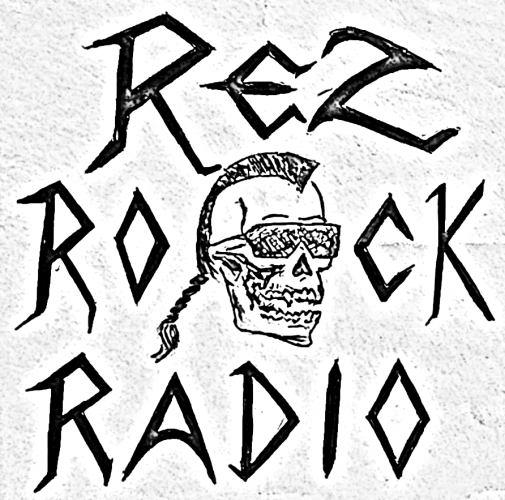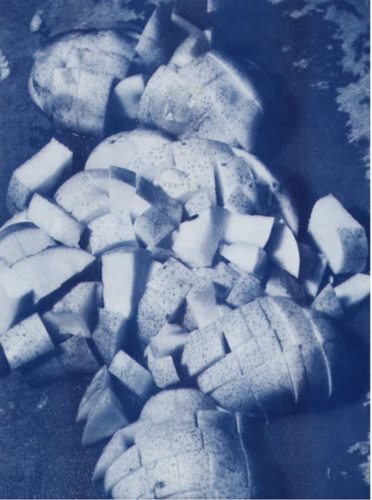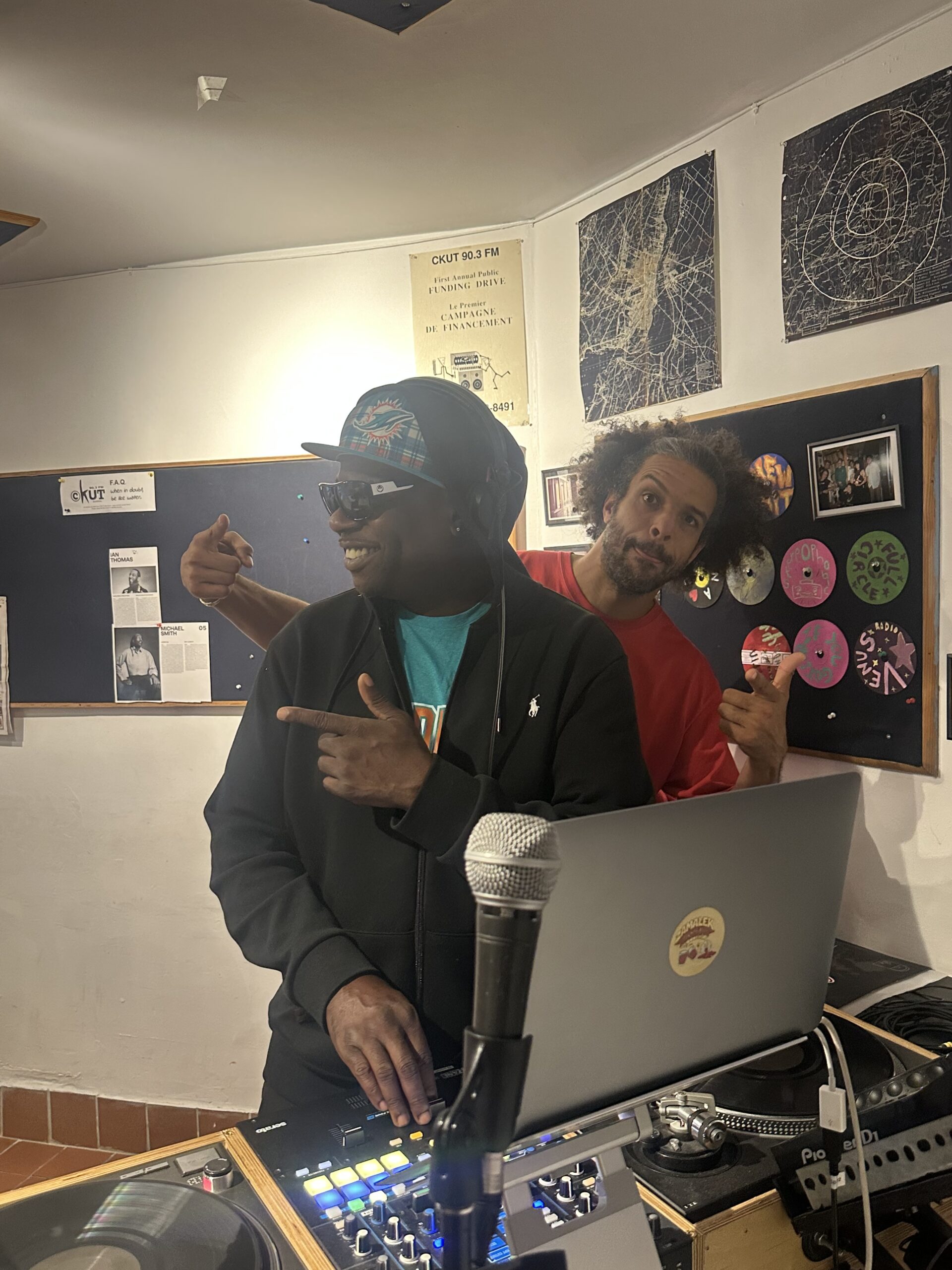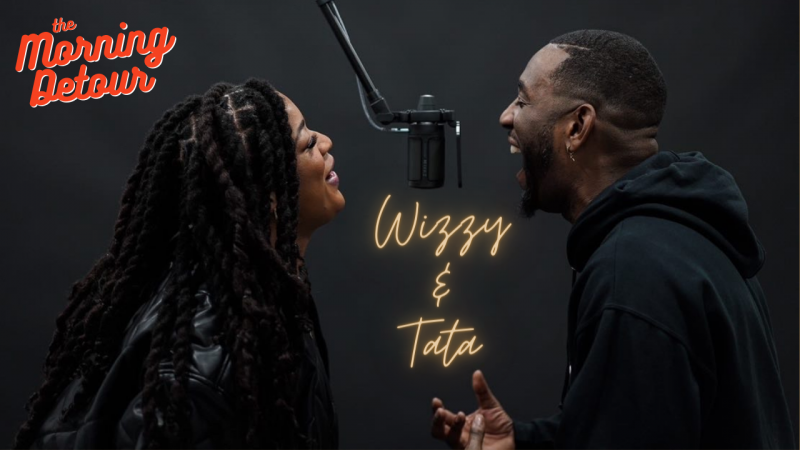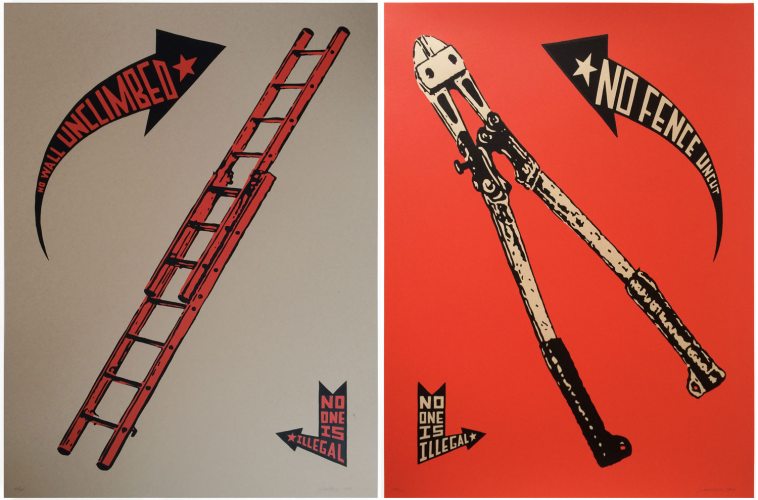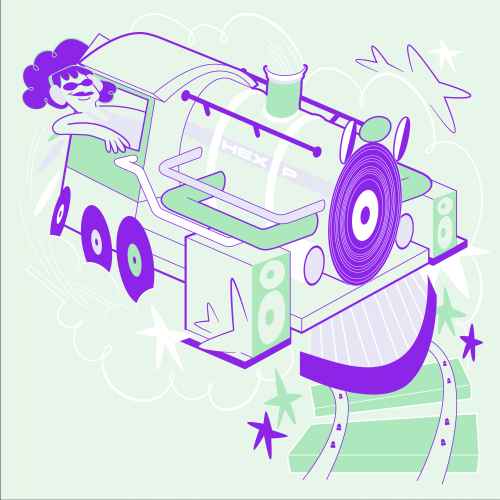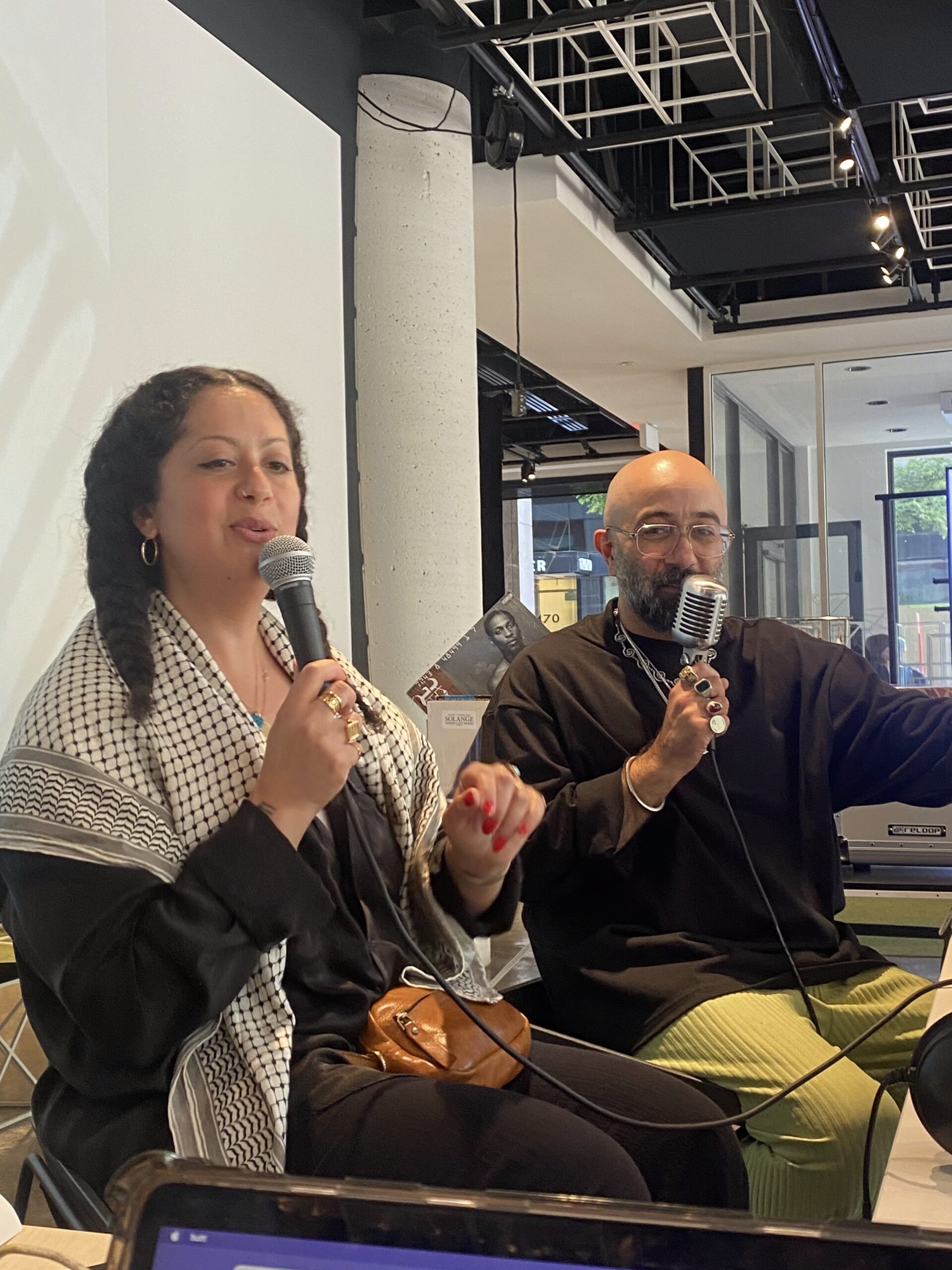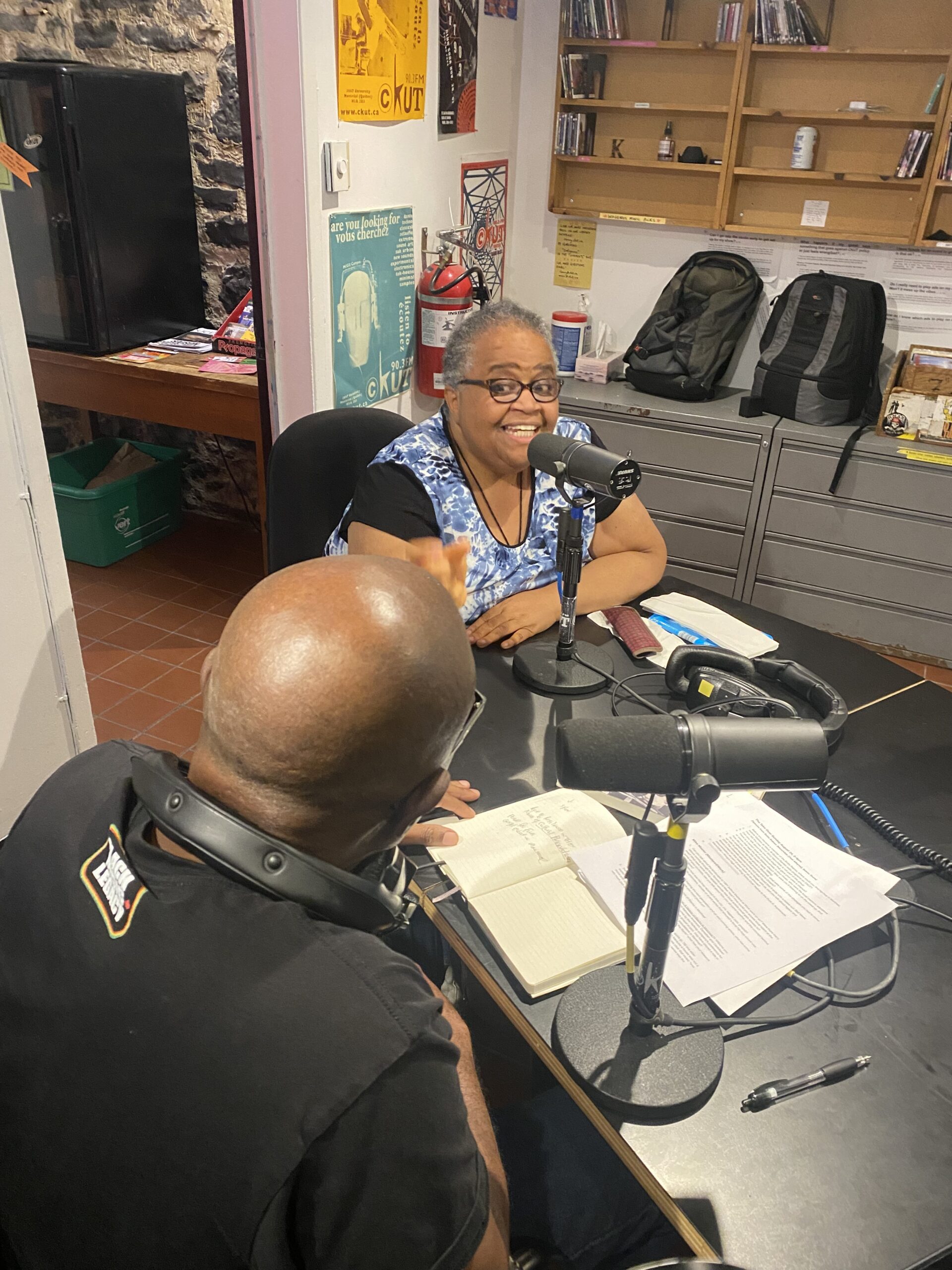RIBBON SKIRT: THE CKUT INTERVIEW
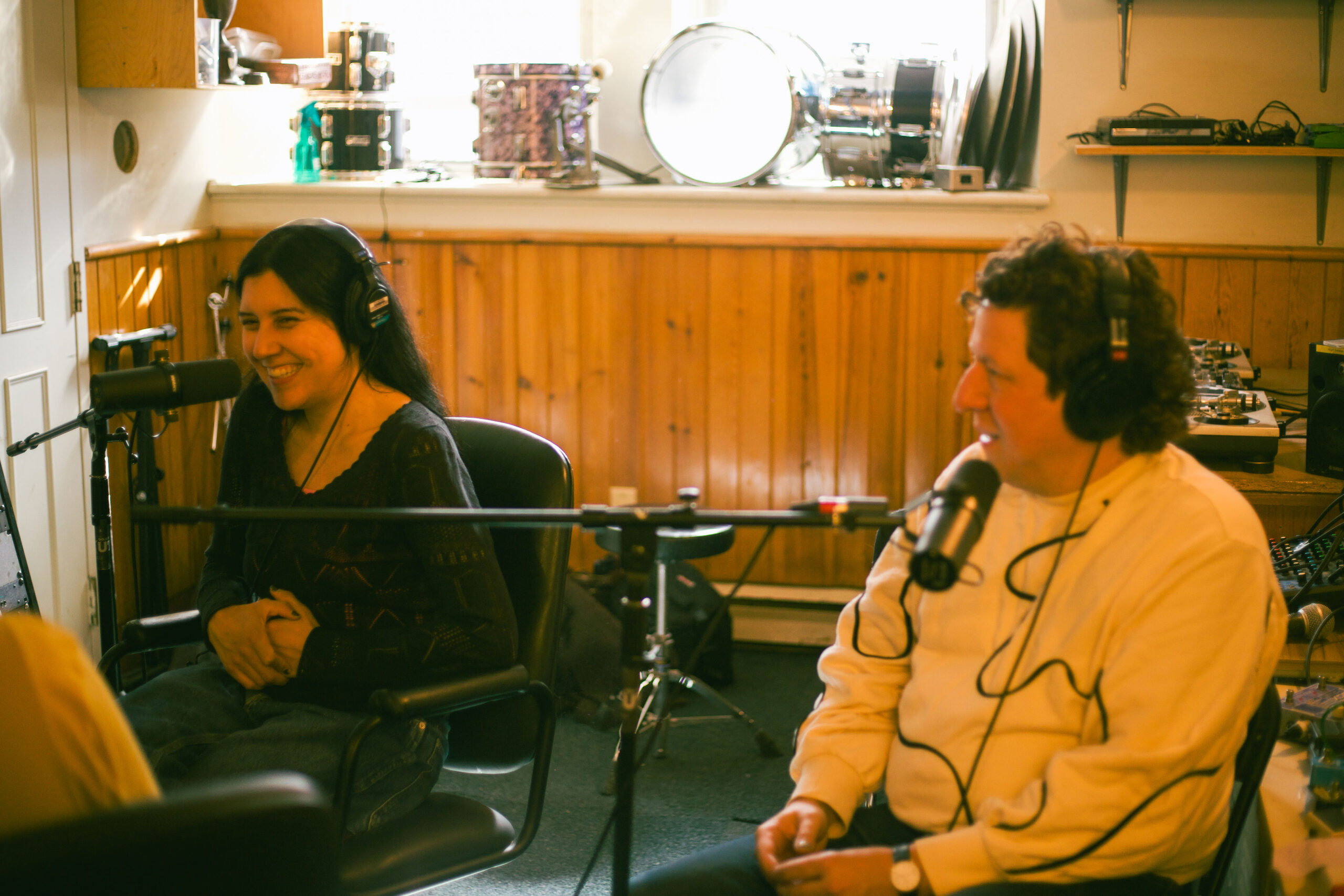
Alex Leitman, a host of Venus Radio, sat down for an interview with Tashiina Buswa and Billy Riley of Montreal alt rock band Ribbon Skirt to talk about their upcoming album “Bite Down,” out April 11th on Mint Records.
So the first thing I want to ask you guys, you just came back from playing SXSW. How was it playing? This is your second year in a row, right? Any cool stories from the road or from Austin?
Tashiina: Well, we got stranded in Atlanta on the way back, if you can call that a cool story. That was a surprise. But, no, we had a great time. It was really packed. We played nine shows in five days, which is a lot of shows. We had two/three show days, which was a lot. We had great showcases. POP showcase was probably the highlight. We ate a lot of barbecue.
Billy: We played a cool house show, which we didn’t do last year. We got to meet, like, a bunch of cool people this time.
T: It was it was so warm out. It was 30 degrees every day. Sunny. We swam in a pool. It was great.
What were some of your favorite acts you guys saw while you were there?
B: We played with Her New Knife; that was a good one. And then we ended up seeing them a bunch of all over town, and they were awesome.
T: Fantasy of a Broken Heart was amazing. Taxidermist. I saw Quiet Light play at a show, and she was amazing.
B: This band called Youbet were really good. We saw a bunch of our friends from Montreal as well. Knitting.
T: They’re so good. We love knitting.
In general, are there any bands like you guys have been really into lately or just kind of inspire your sound on a larger scale?
B: Good question. I really like Horsegirl, that you’re wearing the t-shirt of. Last year, the Chanel Beads record was one that I was really into and inspired me a lot. Nourished by Time.
T: Yeah, Nourished by Time is amazing. Oh, a band I’ve really been into lately is called Truth Club. They’re from Raleigh, North Carolina. They’re amazing. I love their artistry, their lyricism. The sound is so, like, raw and just, it’s powerful. I’ve been, like, listening to them a lot. Also, like, Fantasy by Broken Heart, I’ve been listening to them a lot too. Lots of, new shoegaze stuff.
B: I really like that band, Good Sad Happy Bad. They put out a record last year. So how did you guys meet?
T: We met actually at Concordia. We were in a journalism program together, and we just kinda met in school. I was scared of him at first. He had, like, a buzz cut. It was scary. And then I started posting songs on my Instagram story, and he was like, “Hey, I like that song too!” And then he was like, “We should jam,” and I was like, no. And then he asked another time and then another time. And then finally, I was like, “Okay, fine.” And that was right before the pandemic, I think.
B: In 2018.
T: But then I don’t know what happened. We just sort of did a lot of work before the pandemic, and then the pandemic happened, and then we lost momentum. And then after it was over, we sort of started it back up again and got the other members in. It’s crazy to think about the evolution from then till now.
B: Yeah. It’s gone through a lot of lives and a lot of name changes.
T: We were doing Angel Olsen kind of stuff, like, country, like, Lucinda Williams kind of stuff when we first started, and now we’re this, like, post-punk, shoegaze, whatever.
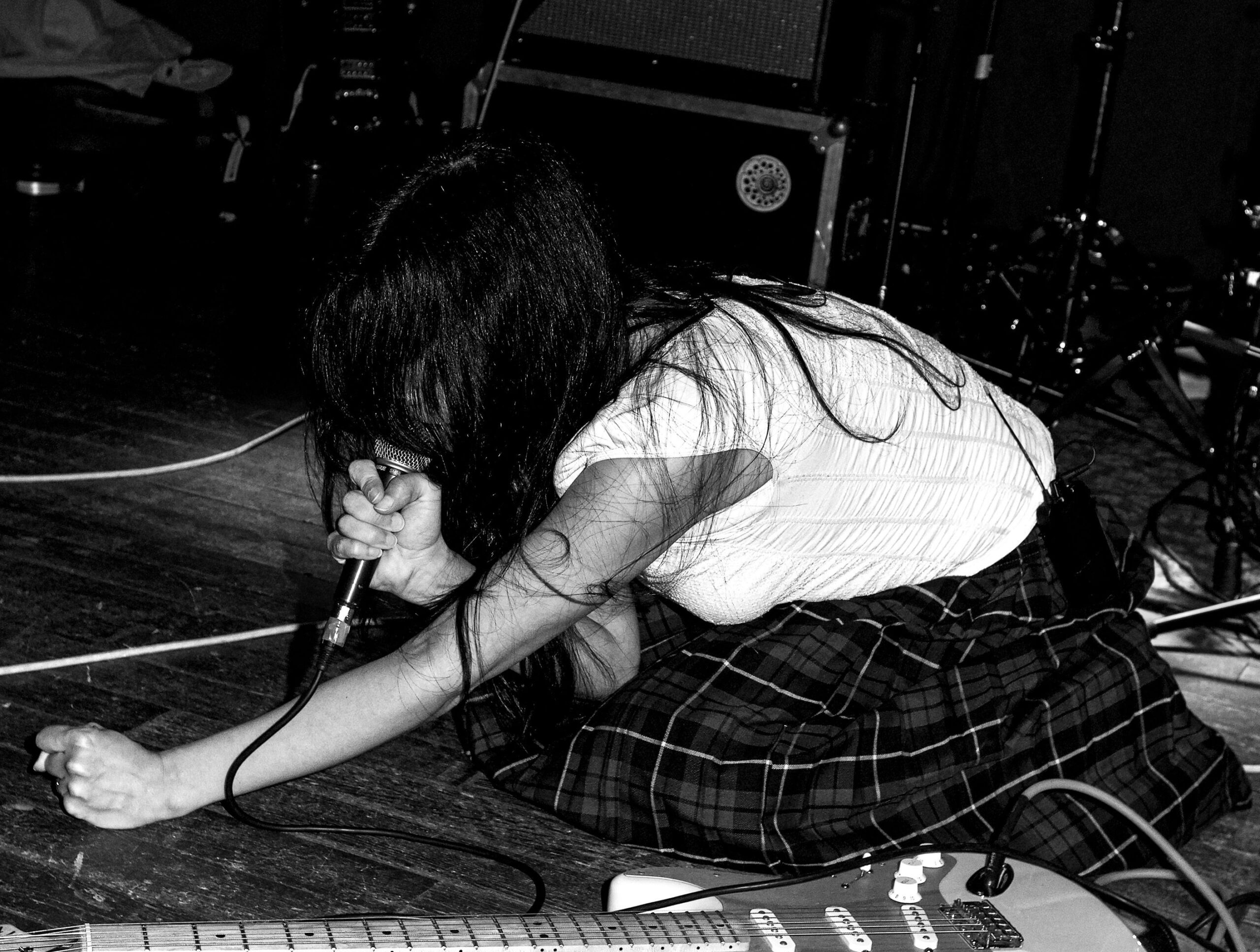
What led to the name change from Love Language to Ribbon Skirt? And do you feel that there’s a chasm between the old band and the new band, or it’s all kinda just been one continuous project?
B: It kinda got to the point where we were just not really playing any of the songs we’d released. And the new songs kind of seemed wildly different. We’d also gone through a lineup change, and it just really felt like a new band, so it just kind of felt like the right time. I’m kind of into just not being too precious about stuff and it just really felt like a new band.
So a lot of your songs from both the Love Language days and now in Ribbon Skirt touch on your identity as an Indigenous individual in a society that’s constantly trying to enforce colonial ideals. How do you feel that expressing this dichotomy through music, in particular, helps you navigate that?
T: I think it’s just, like, a different language of expression. And I think that for me, it’s an accessible language. And I think it’s something that, I don’t know, it’s important for me to carry into my work as an artist, because it’s such a big part of who I am, and it’s just, like, a natural thing to include. But, yeah, there’s a tension there too at the same time. And we were just talking about this in another interview where it’s something that you wanna protect. And it’s so sacred at the same time that you don’t you don’t wanna give too much away, and you don’t wanna say everything, so it’s sort of this fine balance that I keep trying to tread. Just, like, bringing it into the lyrics and stuff. And I’m also just a person as well at the same time, where I’m just like, you know, there is that space for personal emotional excavation stuff. And so it’s a fine balance, I think, of those two things.
For the new album, what did the songwriting process kinda look like? Do any of the songs predate the name change, or is this kinda, like, a clean start with all the new stuff?
B: I think some of the songs predated- Off Res and Dead Horse. There was a there was a couple that kind of we were playing as Love Language and kind of, like, in that transition. And, like, a lot of the album, I see it as like there’s definitely like the transition songs and then there’s the songs which we wrote as Ribbon Skirt at the end which kind of signal, like, a new direction. So it’s a nice transition record of the band transitioning to something new.
So you guys recently put out a music video for Wrong Planet. And I really love, like, the whole dress shop idea. I think I’d gone into that exact dress job with my sister looking at prom dresses. So I’m curious where the idea for that shoot came from.
T: I think it just came from me walking down that street one day and being like, what if we shot a video in the dress shop?
B: Yeah, I think a lot of the shop owners were just a bit like, “What do you wanna do?” It took sort of a long time to find someone who was willing to just give us free rein of their store. Which is understandable.
T: I think I also had this image in my head of a ribbon skirt amongst all of those, like, really gaudy kind of prom dresses. And, like, I don’t know. There was something to that, for me. It really came together exactly the way I had it in my head. Ana-Maria, who shot the video, was just really excellent, you know, a perfect director and filmmaker and kind of captured the chaos of that song as well, I think, in a really cool way.
B: And it was nice just to have, like, a kind of iconic Montreal thing in the video.
T: Yeah, it’s, one of those things that only other Montrealers will really, you know, have grasped onto reference-wise, which we like too.
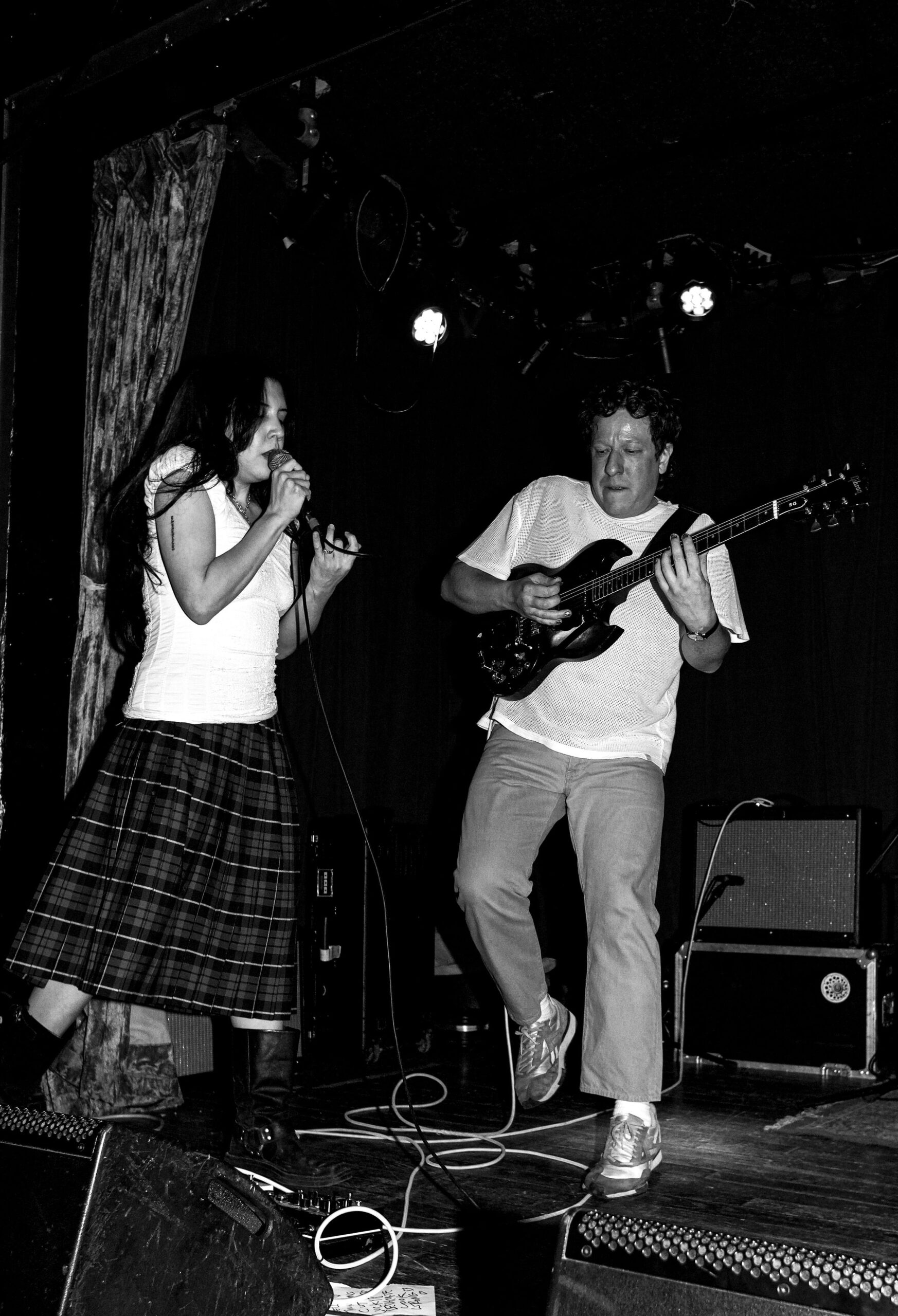
The album cover, with the red-eyed rabbit, I love how it looks. I’m curious what the symbolism is there.
T: There’s a lot of thematic callbacks to rabbits throughout the whole record, and all the songs. One of the main motifs, I talk a lot about setting rabbit snares and traps with my grandfather growing up on his trap line. And so, yeah, we would set these, like, rabbit traps basically. And the imagery of this snare closing in around the throat of a rabbit. Just like the idea of running away from something, but also running to something or trying to catch something, being the hunter and the hunted or whatever. I think that’s a major theme throughout a lot of the songs and we really wanted to capture that. And I think that was Heather’s idea in the end for, like, the rabbit eye. We tried a few different things. It’s just, like, pretty stark.
B: There’s also rabbits in the Cellophane video as well.
T: There’s a lot of, like, shadow puppets that Sasha made for that video. We tried to get a rabbit and the logistics were just too much. You can’t really have a domesticated rabbit in the middle of Parc La Fontaine because it’s gonna run away and then, like, a dog’s gonna come eat it. So we just ended up buying that photo off the Internet. I’m really happy with the way it turned out. There’s also this other thing that we have in the video. It’s like there’s like a shot of me holding up the Sweetgrass. It’s in a circle, and that’s meant to also be a double entendre for a rabbit snare. And sweetgrass is obviously really important in Anishinaabe culture.
Seeing guys live, I feel like you get very in-character on stage. I don’t know if you have a certain approach or anything to say about that.
T: I mean, I think it’s just like this third person thing that you have to tap into. And I mean, Billy, you can attest to this as well, but I feel like playing live, you sort of have to enter this, like, third world. It’s something that I feel like I never know what’s gonna come out of it before I go on stage, and I’ve thought about trying to curate it a bit more or, like, craft it. Because I see some musicians that have really distinct movements and stuff that they do, and, like, I think I have a few of those, but I think for me, I prefer to just lean in and, like, give in to this third world that I don’t know where it’s gonna take me in the moment. And I think that’s more fun to do than to plan it super strategically. It’s like a cool spot where you can never visit that place any other time in your life; it’s only in that moment. And I like accessing that space because it’s like, you know, I barely get to go there, and it’s just cool.
B: I don’t think either of us are naturally attention seekers in our day-to-day life, but I feel like performing gives you the freedom to tap into that. You’re not usually doing it. I found there’s a freedom to do what you want. It’s a weird feeling though because it’s hard to reconcile the two people sometimes.
T: Yeah, I mean, especially you, I feel like you really tap into that in a really cool way. Your British repression gets left at the door at the show.
B: I find it hard to talk about as well. It’s hard to explain. I think it’s always happened though. I’ve been quite shy in my, like, my day-to-day life, but then performance, I find this freedom in it. I just kind of always have. It’s pretty weird.
T: I think that’s why you’re so magnetic as a performer because even in Blooming Season, you just command attention as soon as you’re on stage and people are like, woah! It’s kind of shocking almost compared to who you are in, you know, daily life.
B: It is really hard to define. I think it’s just like when you have a confidence in, like, what you’re doing as an artist, it gives you confidence.
T: It’s almost separate from, like, your confidence as a person. It’s like, “No, I actually just believe in this specific thing.”
Be sure to check out Ribbon Skirt’s new album “Bite Down” when it comes out on April 11th. Physical copies are available for pre-order on their Bandcamp. Ribbon Skirt will be playing an album release show April 25th at Toscadura.
Words: Alex L.
Photos: Sydney B.
